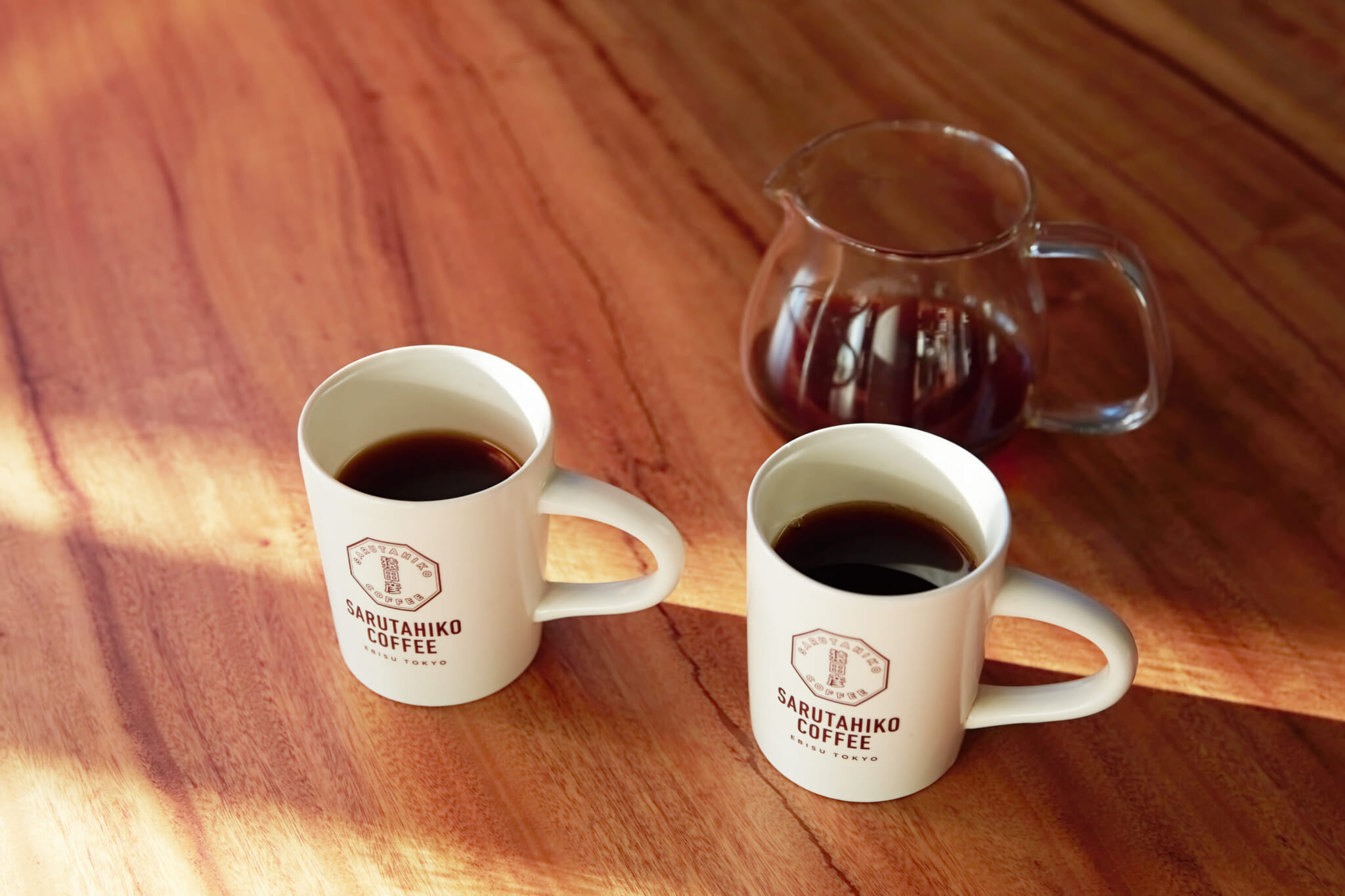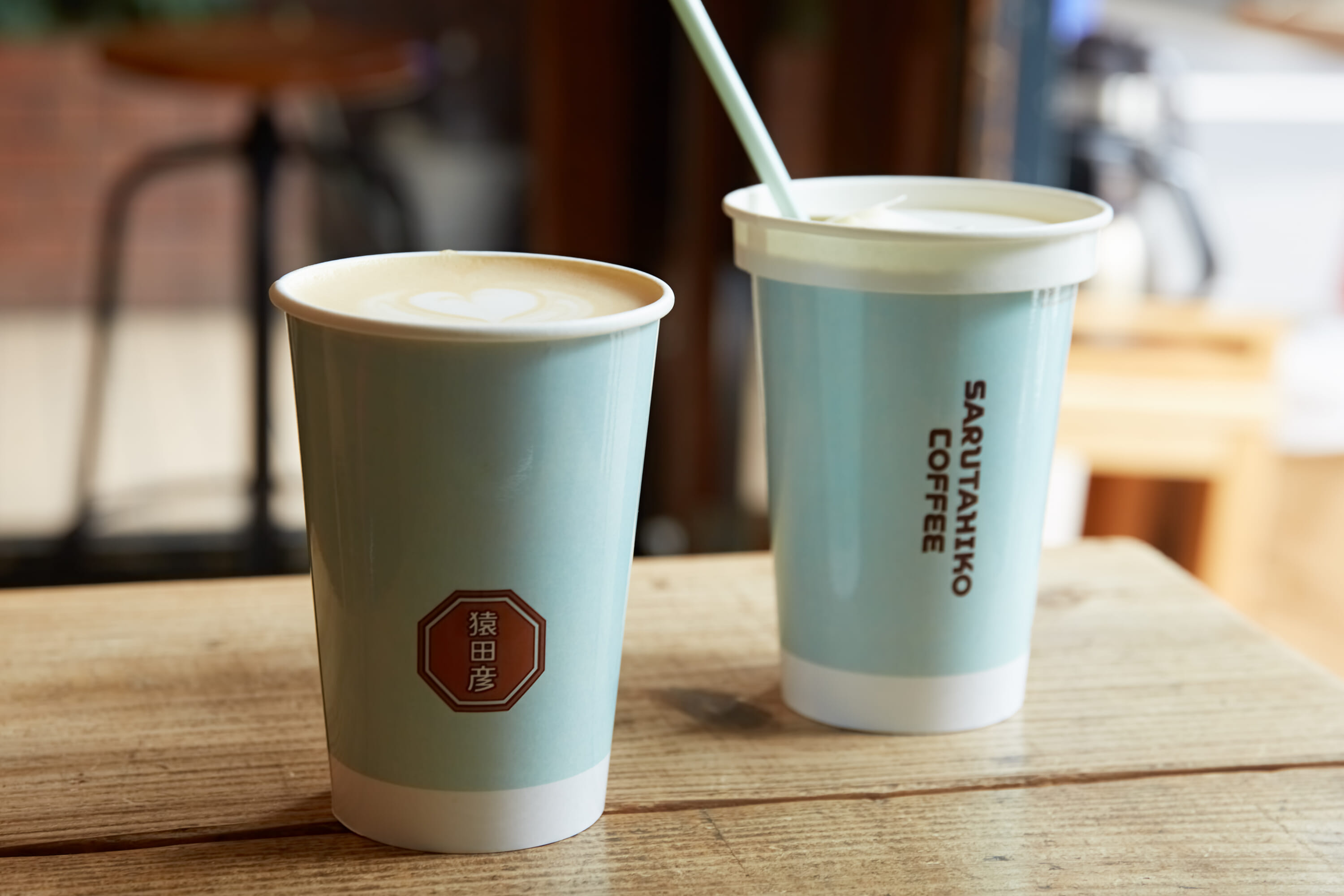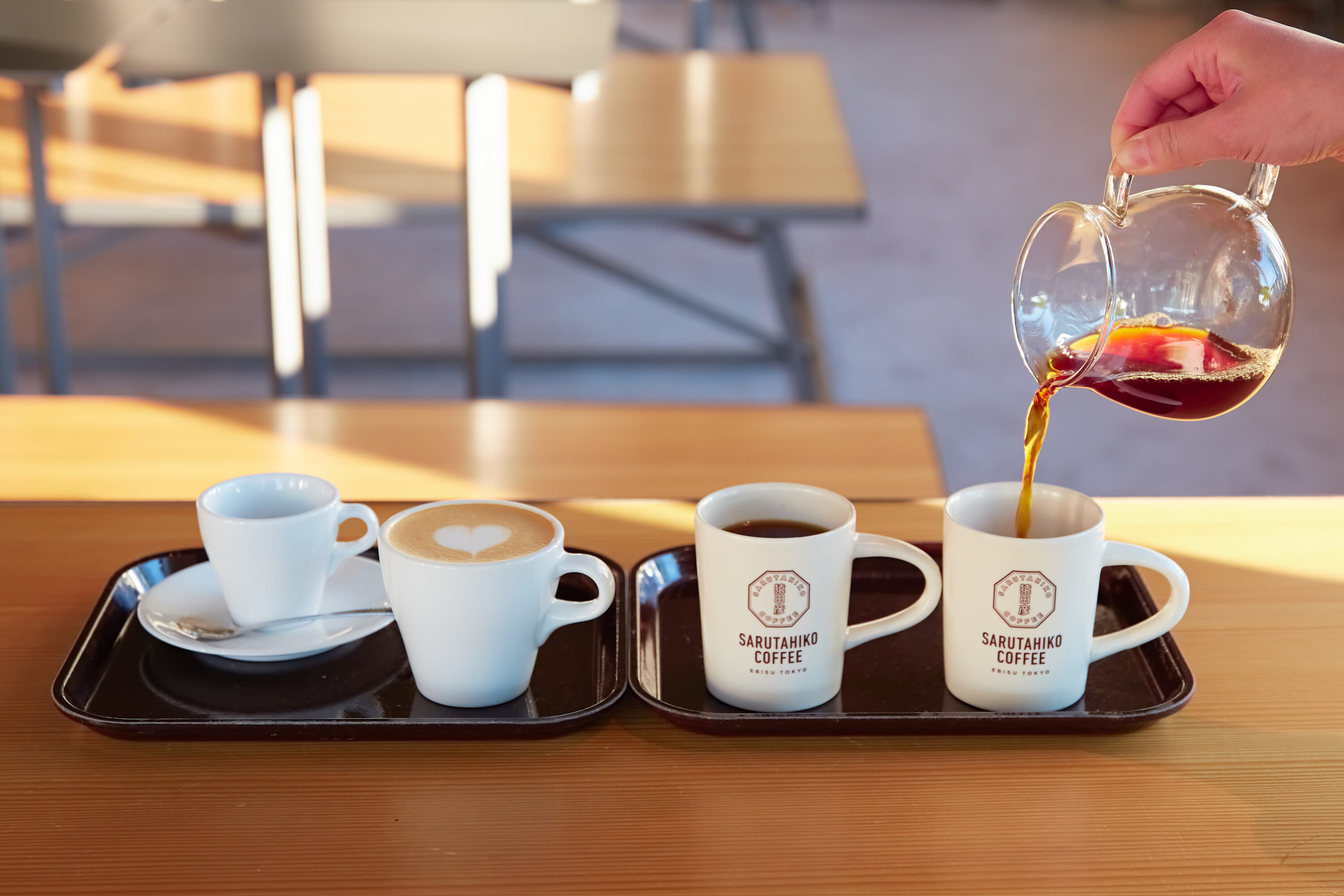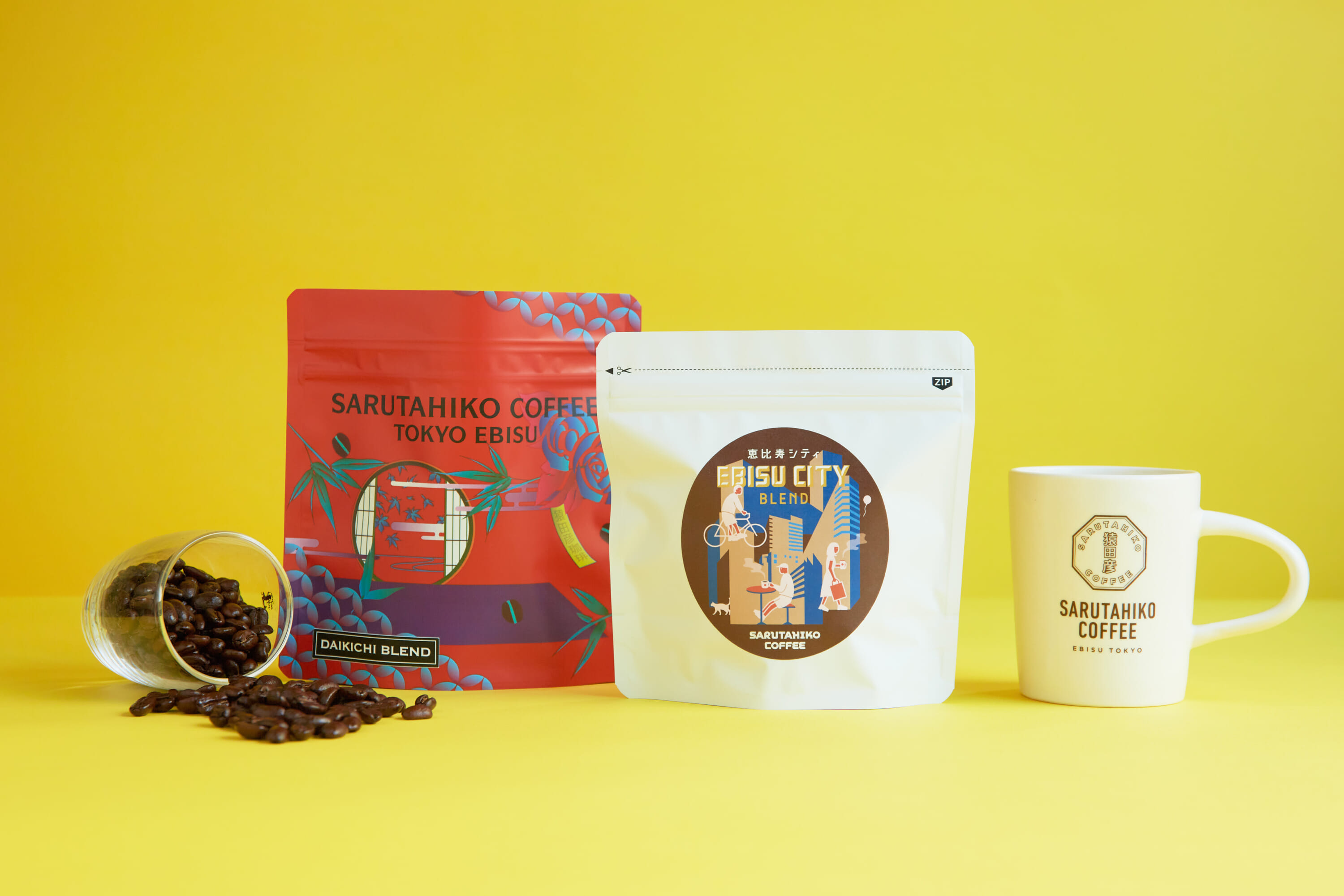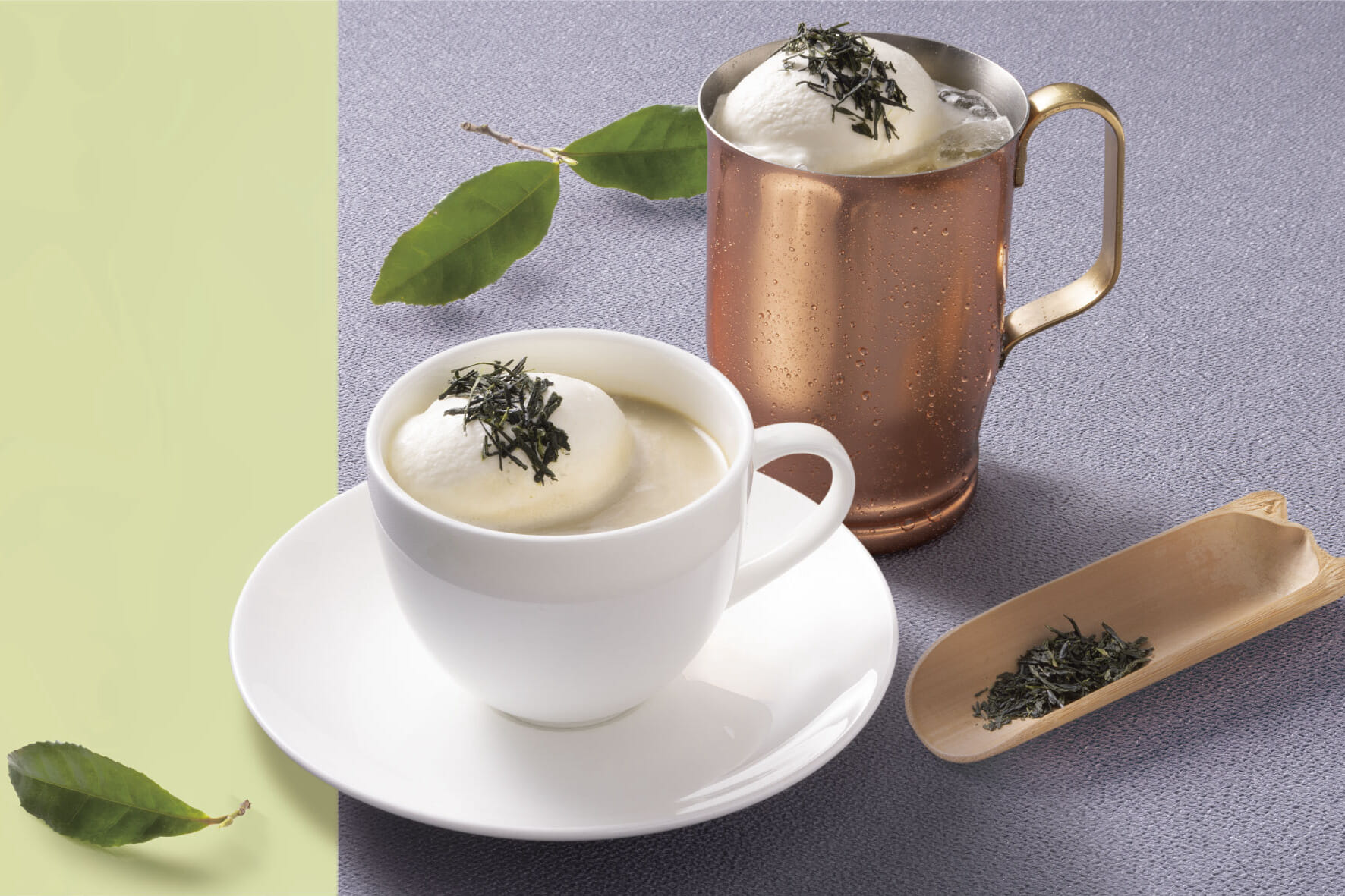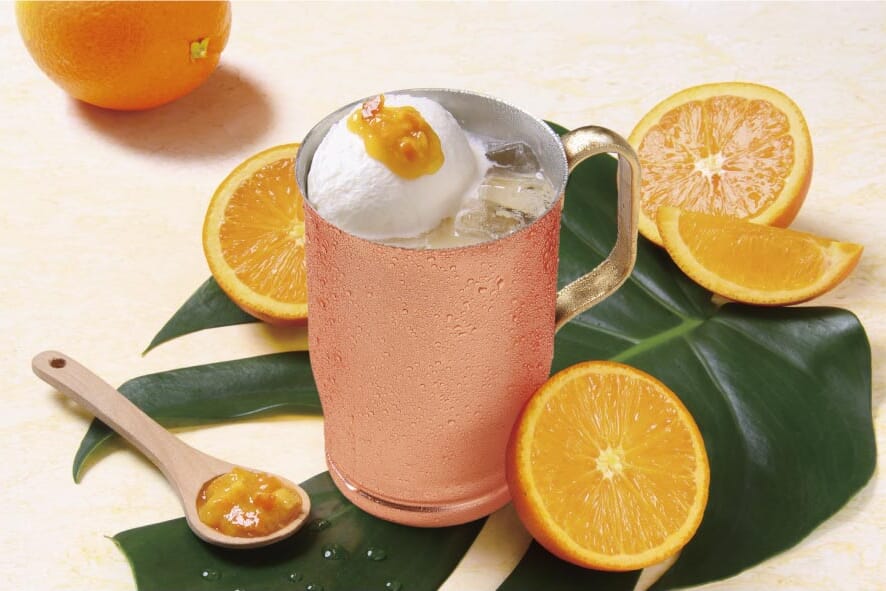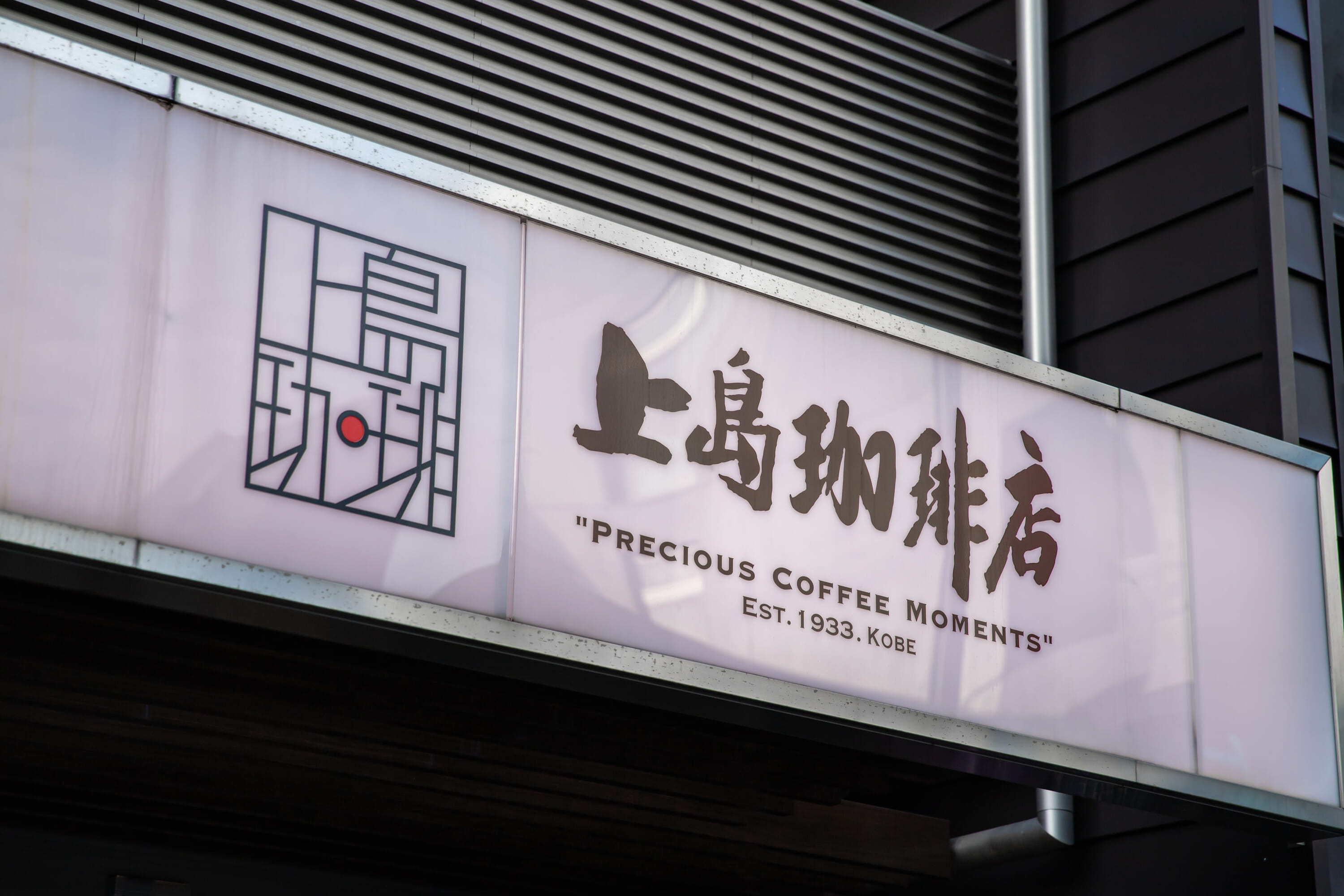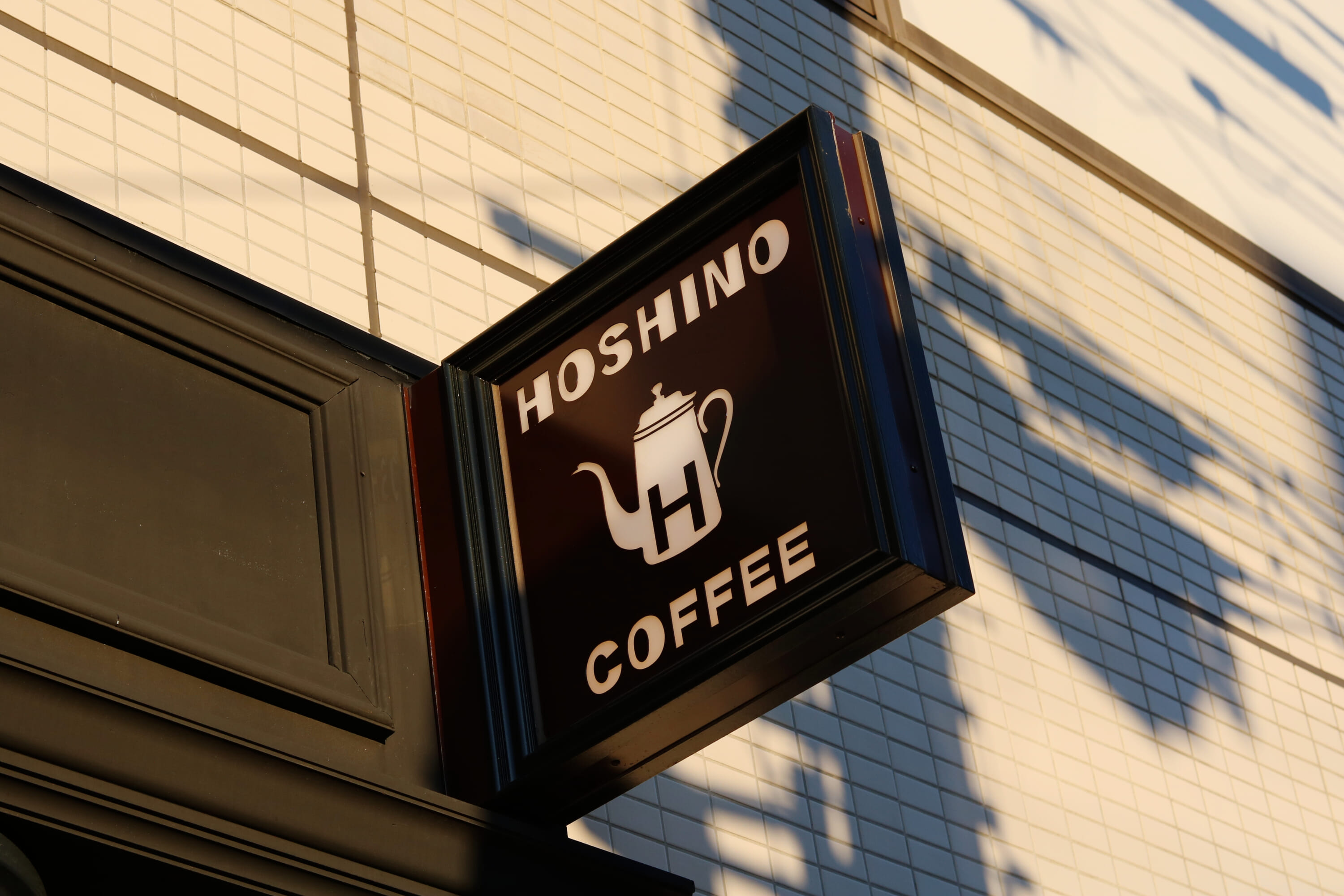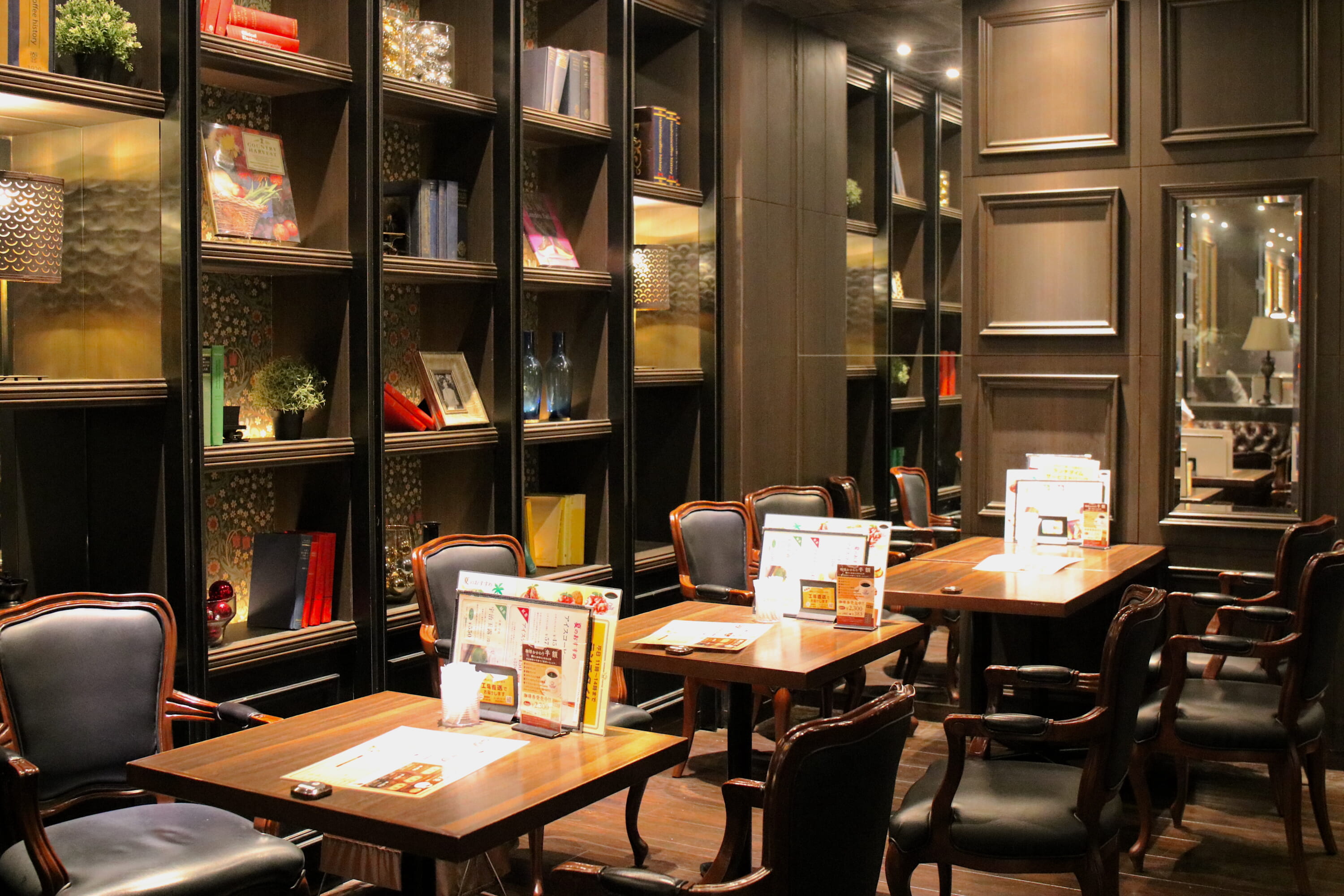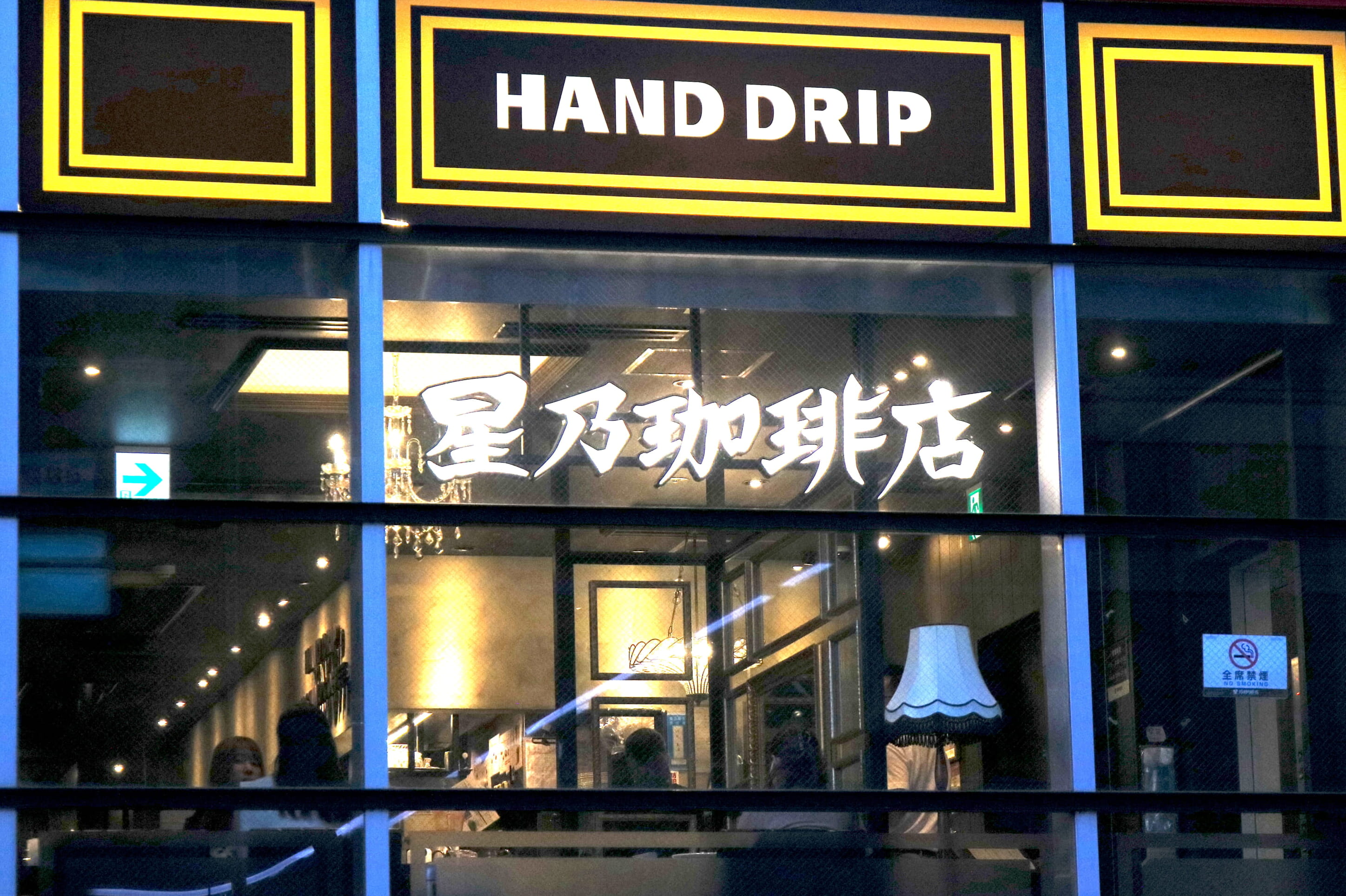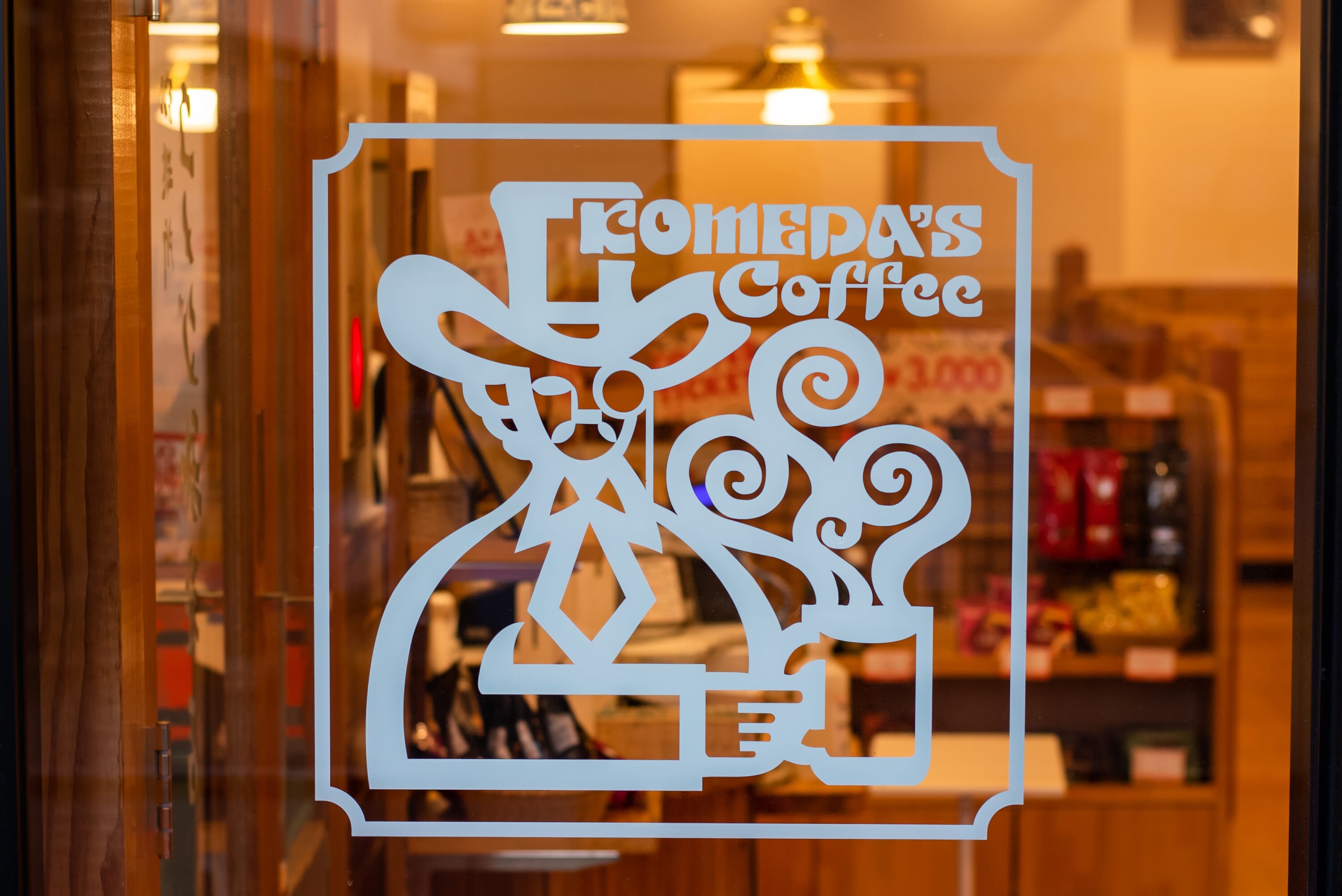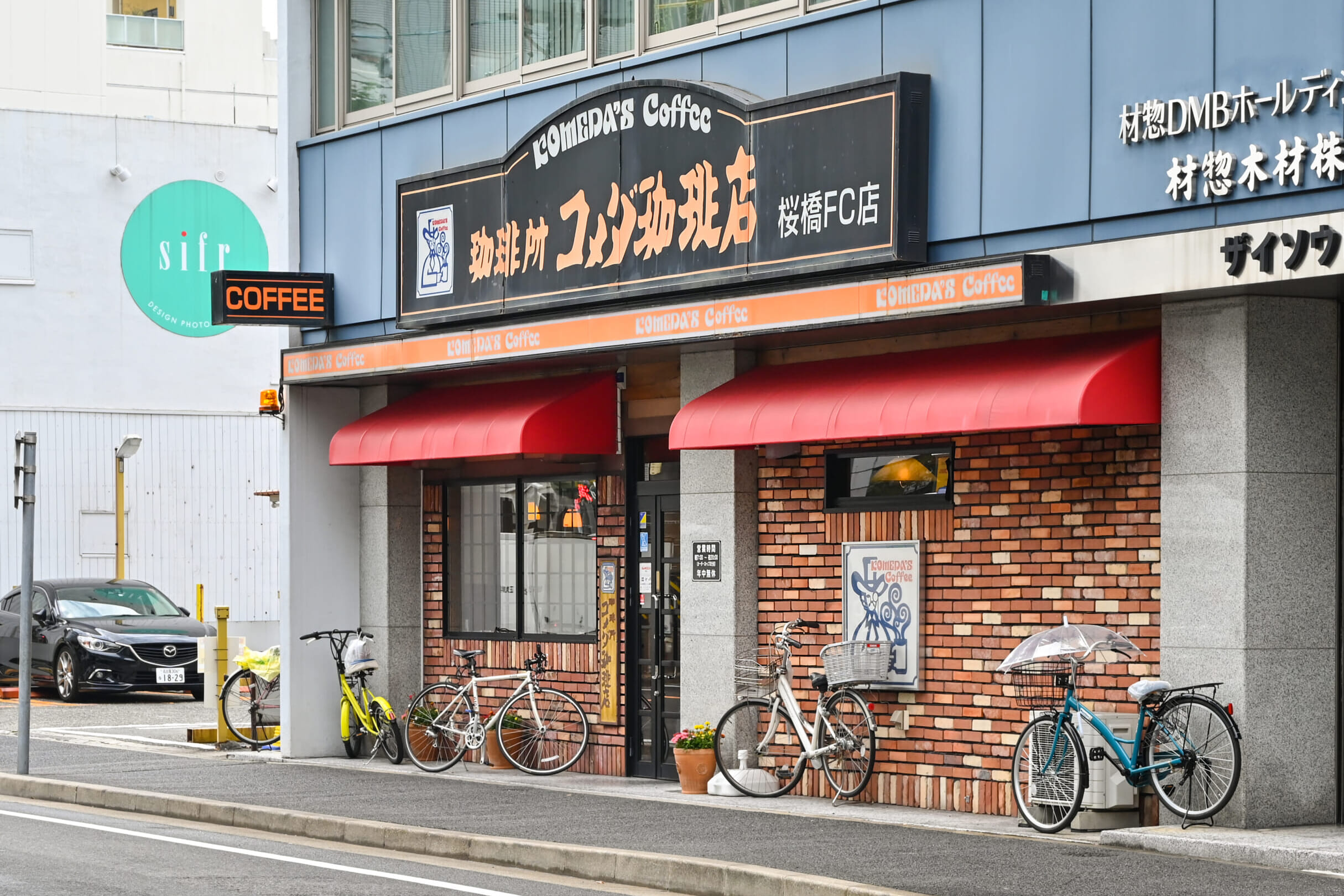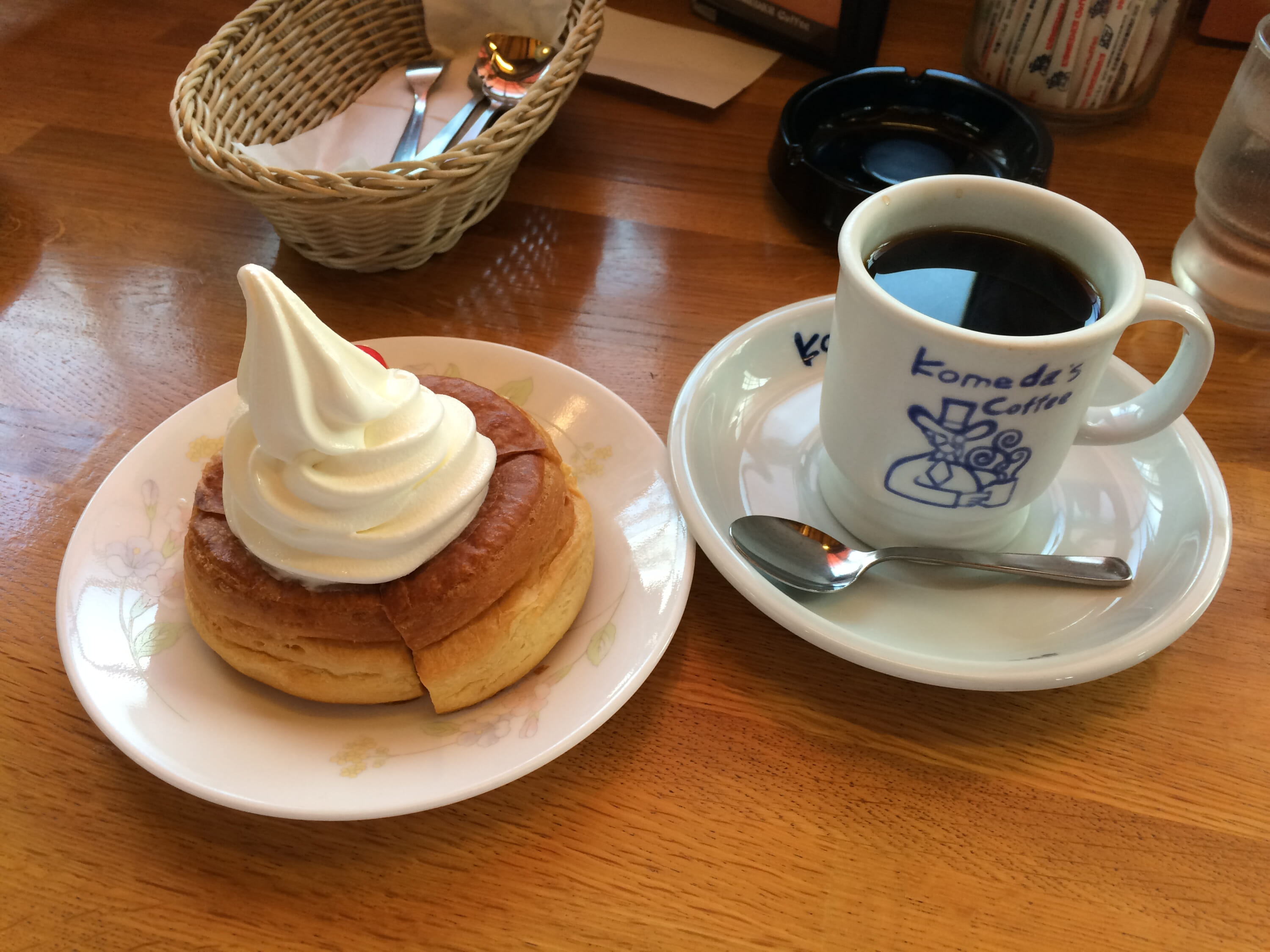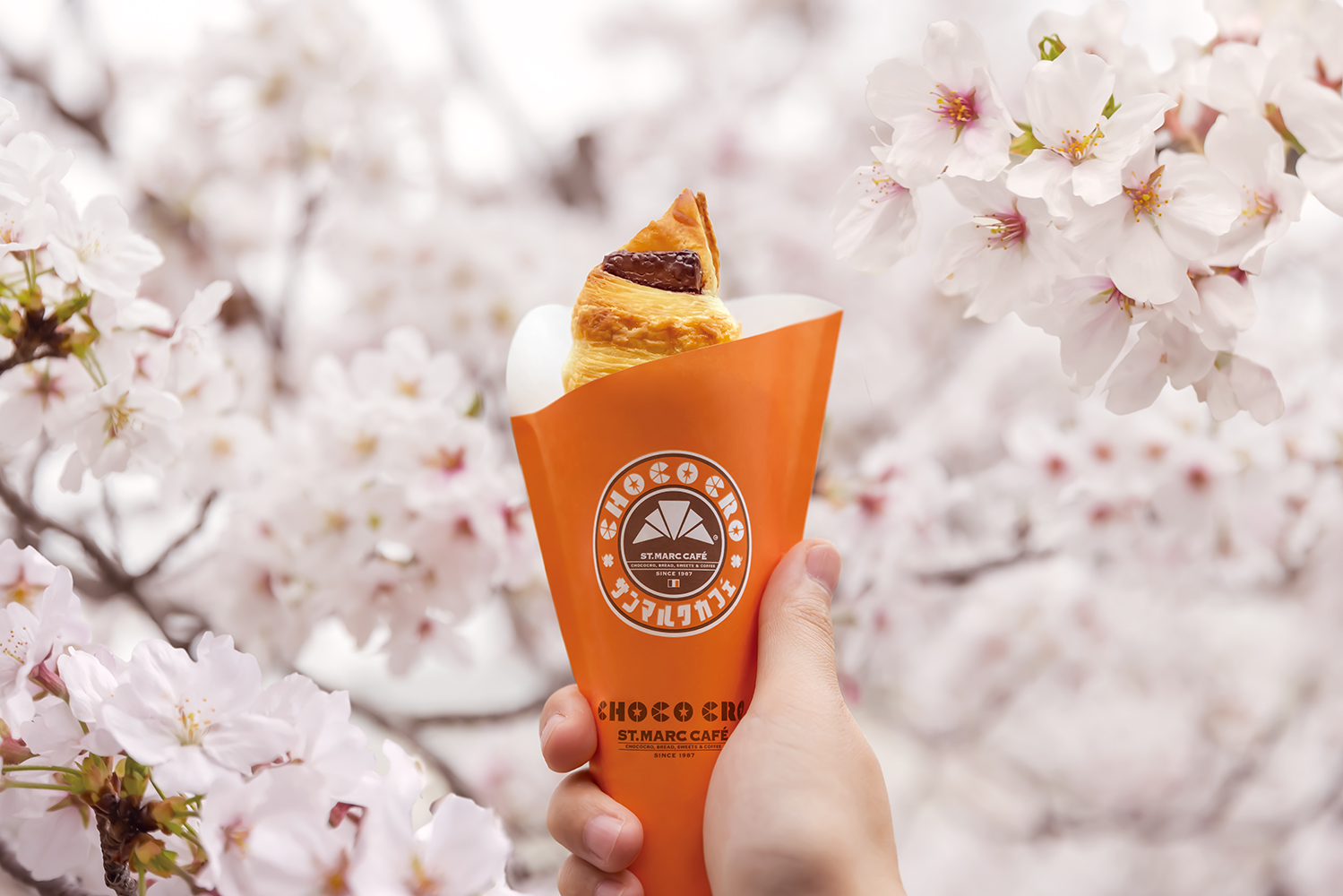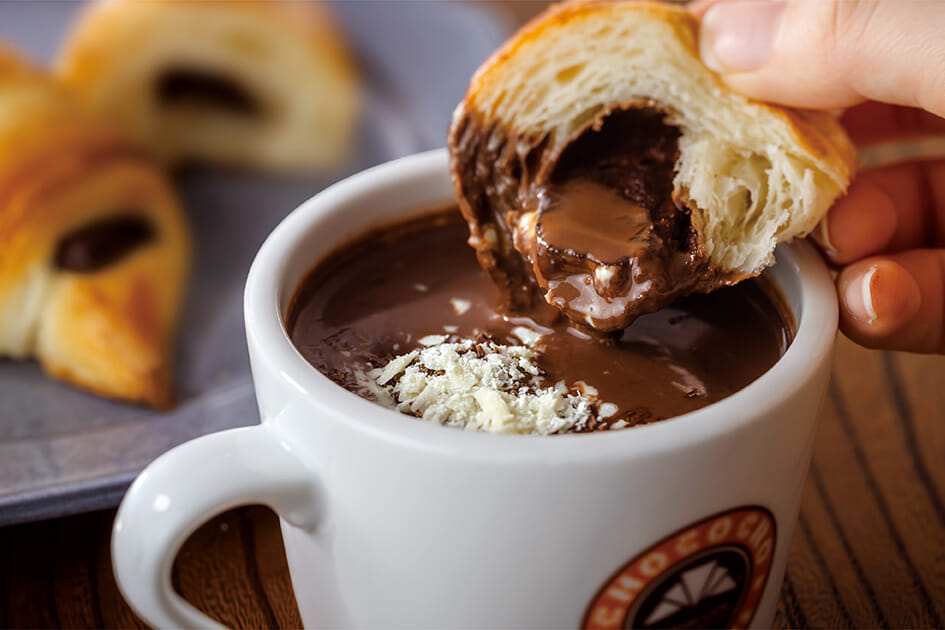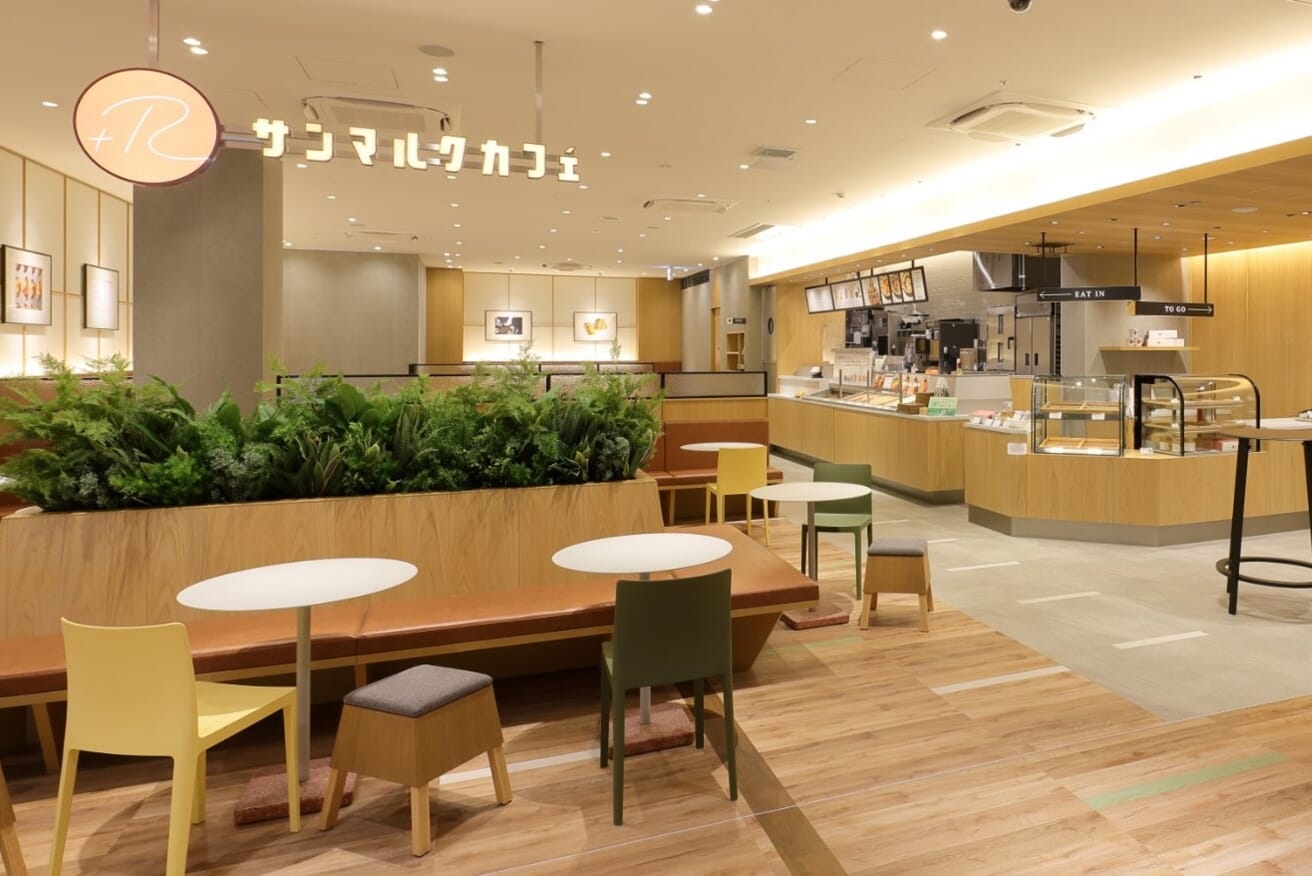Sarutahiko Coffee
At the top of this list for a reason, Sarutahiko Coffee is an example of the specialty coffee wave in Japan. Specialty coffee shops tend to be a single small business run by one barista, but Sarutahiko is an exception. It has 17 coffee shops around Japan, 13 of which are in Tokyo. The brand originated in Ebisu in 2011, where it has its flagship store, an annex store and a shop in Ebisu Station. It is also conveniently located in the new Harajuku Station and in Shinjuku Station, to mention a few more spots.
Sarutahiko coffee is excellent, and the brand’s baristas often win prizes in various domestic and international barista championships. Just recently, at the Japan Latte Art Championship 2023 in Fukuoka, all top three prizes were won by Sarutahiko baristas. So, you can be sure you’ll always get good coffee at this Japanese coffee chain. Sarutahiko also keeps up with trends, always having creative drinks on offer. Just this year it had a chamomile latte, cherry custard latte, rose petal latte, Amanatsu orange latte and tropical juice espresso tonic-style coffee for the summer.
The interior is modern and stylish, the cups have unique designs, and you can also buy Sarutahiko beans for home.
Ueshima Coffee
There are many reasons to pay a visit to this coffee chain, especially because Ueshima Coffee is one of the oldest coffee companies in Japan. Founded in Kobe in 1933, it’s going strong to this day and has close to 100 stores across Japan. Ueshima Coffee is so old that it still uses kanji characters for coffee that are rarely used today. The company UCC Ueshima Coffee Co., Ltd. was also the pioneer of canned coffee in Japan in 1969. The company’s canned coffee then featured in the animated feature film The End of Evangelion in 1997.
The stylish and elegant interior is also testament to Ueshima Coffee’s longevity. The atmosphere is calm, with jazz playing often and people reading books. The menu boasts robust full-body coffee served in gorgeous copper mugs. The Nel drip filter is Ueshima’s own coffee making method that produces rich, tasty coffee. It’s a method adopted by most old-fashioned kissaten in Japan. Ueshima Coffee doesn’t lag when it comes to keeping up to date with trends either. On the contrary, the company has come up with bold offerings such as wasabi milk coffee, delicious coconut latte milk coffee, plus many more to go with its classics such as the Okinawan brown sugar milk coffee and the vanilla bourbon milk coffee. Its sweets and sandwiches are also a must-try, particularly the rum chocolate balls.
Hoshino Coffee
With an elegant, retro atmosphere, Hoshino Coffee has a similar aesthetic to Ueshima Coffee, even down to the copper coffee cups. However, surprisingly, it’s a coffee brand that was founded in 2011, albeit by a parent company that’s been much longer in the coffee business. Currently, all coffee beans in Hoshino Coffee are selected by coffee specialist Masahiro Kanno. He inspects premium Arabica beans from all over the world. Then, the coffee beans are roasted on an open-fire flame. Finally, coffee is hand-dripped for a classic, smooth, rich and dark coffee beverage.
In the morning, there’s free toast or a pancake with coffee, followed by great lunch deals and dessert sets in the evening. Patrons love the fluffy soufflé pancakes at Hoshino Coffee, as well as the retro-style puddings and sandwiches. The brand embodies the Japanese retro kissaten style. At the same time, Hoshino Coffee is also particular about its vintage-looking European-style furniture, such as floor lamps, crystal chandeliers, leather sofas and more in its many stores across the country. It’s a pleasant space to be in, and just like other coffee chains, you’ll find people reading, studying and chatting with friends.
Komeda’s Coffee
This Nagoya-born coffee chain is now popular all over Japan (with over 400 stores) and for a good reason. It serves a free breakfast, called “the morning,” which is a Nagoya tradition. This has been picked up by other coffee shops in Japan, such as the aforementioned Hoshino Coffee. The katsu sandwich is also extremely tasty and popular. The brand is, of course, dedicated to high quality coffee, first and foremost. It produces strong black dependable coffee, as well as milk coffee options and seasonal drinks such as coffee jelly.
Komeda’s Coffee is also dedicated to customer comfort — which is not always the case in Japan, with many coffee shops actively discouraging long relaxed stays. “For our customers, we want our Komeda stores to be like an extension of their own living room, providing them with a living room in the city,” is the message on Komeda’s official website. This is achieved with spacious stores, comfy booths, free Wi-Fi and electrical outlets everywhere. It’s one of the most welcoming establishments you can visit.
Saint Marc Cafe
This coffee chain, founded in 1987 and pronounced San Marco in Japanese, takes pride in its croissants. Every store has a bakery that produces warm and delicious pastries. It also offers beautiful parfaits and desserts. Coffee is affordable and does the trick, especially the milk coffee drinks and the hot chocolate drinks. There are also fun seasonal flavors too.
Saint Marc Cafe also takes pride in providing a relaxing space for customers. The stores have ample space and furniture, as well as dimmed lights and jazz playing in the background. The recently opened additional brand named R+ has a more minimal and brighter design aesthetic but keeps the main goal of creating a comfortable space.
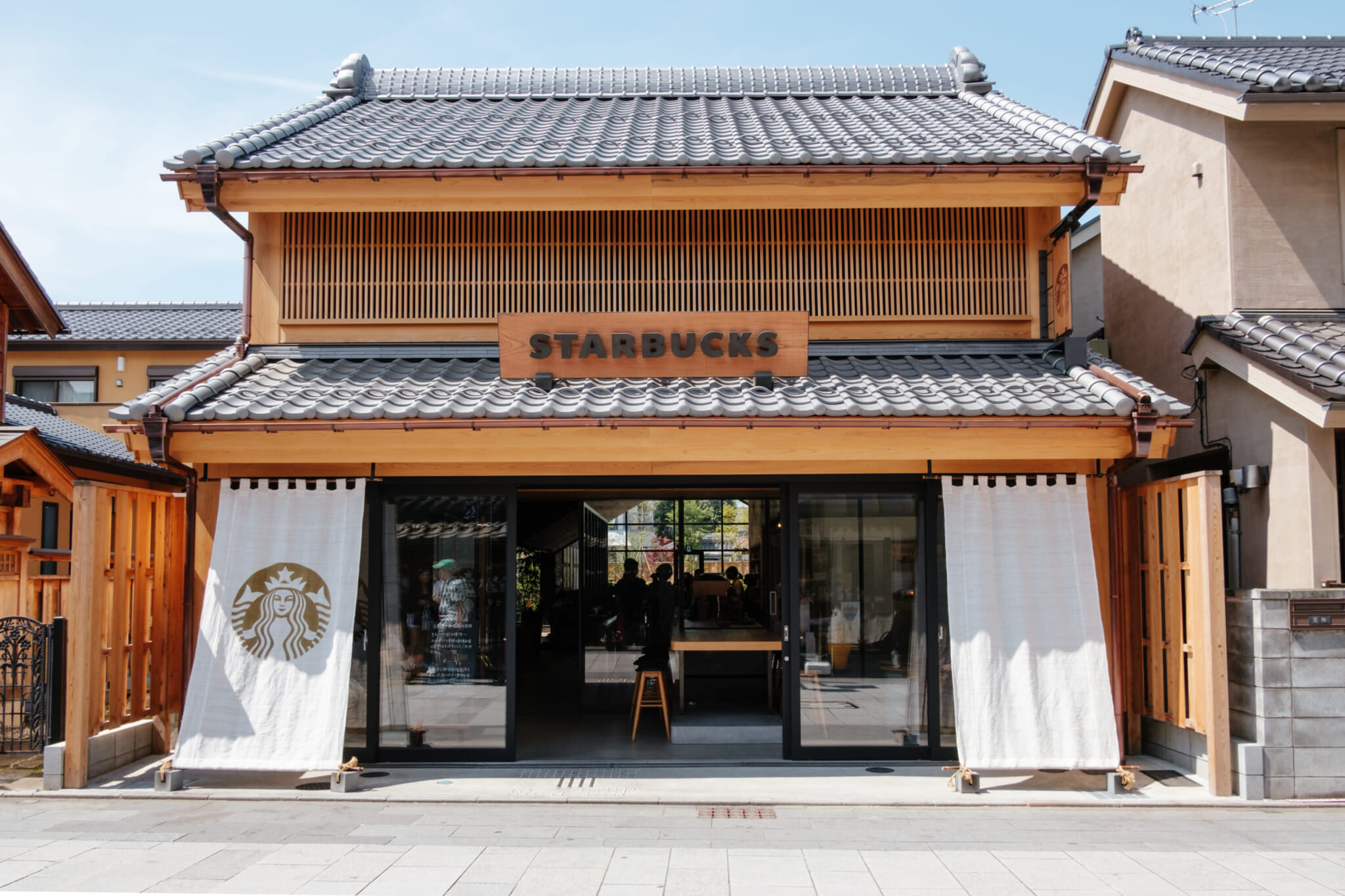
Photo by Teeraphan Pensupha via Shutterstock
Honorable Mentions
Also check out Miyama Coffee and Kohikan, two more Japanese coffee chains that have the retro kissaten vibe and menu. They offer the free morning bites with coffee, as well as iconic kissaten specials, such as Napolitan pasta, katsu sandwiches, shaved ice, parfaits and more.
While not having originated in Japan, there are also some coffee franchises in Japan that have been localized and offer great coffee. Walk into any Segafredo coffee shop in Tokyo for a decent Italian espresso or macchiato, or go to Antico for similar reasons. Both brands have comfortable spaces with red and black interior designs.
And if you really must go to Starbucks, go to the ones unique to Japan. The brand has opened several branches with special concepts, such as the Starbucks in the historical town of Kawagoe. This Starbucks is built like a traditional Japanese house, complete with a Japanese garden outside. A Starbucks in Kyoto has a similar design, with tatami mat rooms too. There is, of course, the Roastery in Nakameguro, designed by Kengo Kuma. The coffee there is different from a standard Starbucks and is on par with specialty coffee stores. It even has a bakery on site, resulting in a great food menu as well.

